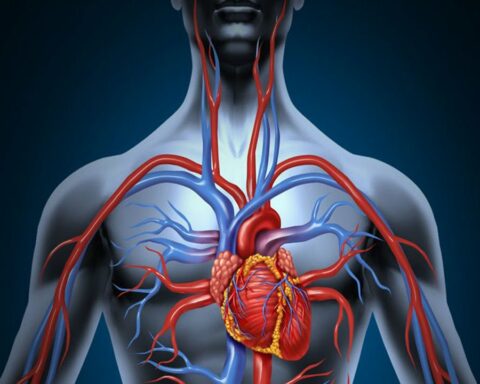Decaf ordecaffeinated coffeeis one of the most loved beveragesin the world. Extracted from coffee beans, this beverage has healthbenefits you may not get from highlycaffeinated varieties. What are these magic kicks decaf coffee can give your health? Keep reading below to find out.
Decaf coffee has 3% caffein content. Some people love drinking caffeinated coffee for personal preferences while others do it to get health benefits including increased mental alertness, nervous system stimulation, and alleviation of tiredness.Decaffeination involves removing caffeine from the normal coffee beans. The result is a product with a milder taste and good smell. The methods involved in decaffeination include;
- Water processing that uses chlorinated water to extract caffeine from the coffee beans, making them caffeine-free and chemicals-free.
- The supercritical carbon dioxides that involve using carbon iv oxides as a solvent to remove the caffeine from the coffee beans.
- The direct organic solvent method that bets in chemical solvents including ethyl acetate or methylene chloride to extract caffeine.
Caffeine Content In Decaf Coffee
97% of caffeine is removed from the coffee beans to make caffeinated coffee. However, caffein content may vary depending on the brand, with the moderate decaffeinated varieties boasting3 mg per cup.According to the United States department of agriculture, decaf coffee should contain 0.10 percent caffeine. That being said, consume 200mg of this coffee as the European Food Safety authority recommend. Let us now explore the health benefits of Decaf coffee.
Reduces Type 2 Diabetes Risks
Although the coffee has 3 % caffein content, this amount has cafestol. This is a bioactive compound essential for insulin hormone production, increasing insulin sensitivity. Sufficient Insulin maintains healthy blood sugar levels, type 2 diabetes risks.
Improves Liver Health
The body uses the caffeine in the coffee to digest and form Para xanthine, a chemical substance involved in protectionof scar development tissue.This process known as fibrosis and it may fight diseases including liver cancer, hepatitis C, alcohol-related cirrhosis, and non-alcohol fatty liver diseases.
Maintains a Healthy Heart
Decaf coffee has chlorogenic acids that stimulate production of an enzyme in the blood to prevent blood clotting. Antioxidants in coffee alsoremove toxic substances in the body through the liver, improving your heart health.
Repairs Worn Out Muscles
Vitamin B3, magnesium, and potassium harbored in decaf coffee are essential in muscle repairing worn out muscles. Potassium improves electrolytes transmission,muscles contraction and relaxation. Magnesium is also involved in muscle contraction and but it is a natural calcium blocker that boosts muscle relaxation.
Sharpens Your Brain
Decaffeinated coffee boosts hippocampus functionality. Sufficient decaf coffee intake speeds up glucose break down in the brain, reducing type 2 diabetes risks. What’s more the mitigates brain dysfunction which can be caused by certain neurological disorders.
Side Effects of Decaffeinated Coffee
As with anything in life, moderation is important when taking this coffee. Over consumption of caffeinated coffee has side effects including;
Can Make You Urinate Frequently
Taking more decaf coffee than the daily recommended amount increaseshydration. Your body will absorb a certain amount of water with nutrients in the blood, removing the rest from the body through urination.
May Cause Heart Diseases
Decaf coffee isprocessed methylene chloride, a solvent with carcinogenthat can increase the level of LDL cholesterol in the blood. This can cause life-threatening heart diseases.
Increases Acidity Levels in The Stomach
Less caffeine in decaf coffee increases the production of serum gastrin in the body. This hormone triggersrelease of stomach acids including gastric acids and hydrochloric that accumulate in the stomach, increasing acidity levels. Caffeine in decaf coffee also causesreflux that develops aburning pain in the lower chest.
Affects Muscle Performance
Rhabdomyolysis is born from more caffeine intake. High caffeine intake breaks down skeletal muscle fiber, damaging muscle contents. These contents enter the bloodstream, opening windows for kidney failure and other health problems.
Impairs Iron Absorption
Decaffeinated coffee contains chlorogenic acids that dilute blood sugars and inhibit G 6 phase. These acids also impair absorption of iron in the body.
Causes Headache and Drowsiness
Methylene involved in processing decaf coffee may cause fatigue, drowsiness, and headache. To avoid these conditions, withdraw or reduce from decaf coffee intake. Decaffeinated coffee temporarily slows down CNS functioning that may cause nausea.
The Bottom Line
Decaf coffee can be better alternative to regular coffee. It’s rich in antioxidants that can boost your health. Everyone may not be in love with coffee given the high caffeine content that may compromise your health. Above all moderate your decaf coffee intake to enjoy its health benefits to the fullest.
- How to Manage or Improve Anxiety - September 21, 2023
- The birth of a company - July 29, 2023
- Online Fitness & Nutrition/Personal Training by Rob Powell - July 7, 2023









